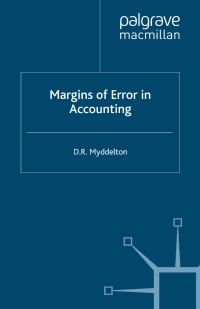Question
OLeary Corporation manufactures special purpose portable structures (huts, mobile offices, and so on) for use at construction sites. It only builds to order (each unit
OLeary Corporation manufactures special purpose portable structures (huts, mobile offices, and so on) for use at construction sites. It only builds to order (each unit is built to customer specifications). OLeary uses a normal job costing system. Direct labor at OLeary is paid $37 per hour, but the employees are not paid if they are not working on jobs. Manufacturing overhead is assigned to jobs by a predetermined rate on the basis of direct labor-hours. The company incurred manufacturing overhead costs during two recent years (adjusted for price-level changes using current prices and wage rates) as follows.

At the beginning of year 3, OLeary has two jobs, which have not yet been delivered to customers. Job MC-270 was completed on December 27, year 2. It is scheduled to ship on January 7, year 3. Job MC-275 is still in progress. For the purpose of computing the predetermined overhead rate, OLeary uses the previous years actual overhead rate. Data on direct material costs and direct labor-hours for these jobs in year 2 follow.

During year 3, OLeary incurred the following direct material costs and direct labor-hours for all jobs worked in year 3, including the completion of Job MC-275.

At the end of year 3, there were four jobs that had not yet shipped. Data on these jobs follow.

Required:
a. What was the amount in the beginning Finished Goods and beginning Work-in-Process accounts for year 3?

b. OLeary incurred direct materials costs of $61,000 and used an additional 700 hours in year 3 to complete job MC-275. What was the final (total) cost charged to job MC-275?

c. What was over- or underapplied overhead for year 3?

d. OLeary prorates any over- or underapplied overhead to Cost of Goods Sold, Finished Goods Inventory, and Work-in-Process Inventory. Prepare the journal entry to prorate the over- or underapplied overhead.

e. A customer has asked OLeary to bid on a job to be completed in year 4. OLeary estimates that the job will require about $94,500 in direct materials and 5,200 direct labor-hours. Because of the economy, OLeary expects demand for its services to be low in year 4, and the CEO wants to bid aggressively, but does not want to lose any money on the project. OLeary estimates that there would be virtually no sales or administrative costs associated with this job. What is the minimum amount OLeary can bid on the job and still not incur a loss?

Step by Step Solution
There are 3 Steps involved in it
Step: 1

Get Instant Access to Expert-Tailored Solutions
See step-by-step solutions with expert insights and AI powered tools for academic success
Step: 2

Step: 3

Ace Your Homework with AI
Get the answers you need in no time with our AI-driven, step-by-step assistance
Get Started


